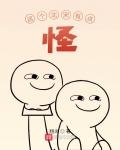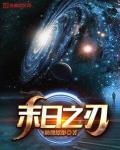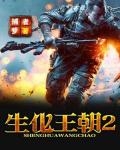Chapter 068 Smell
Hongsavadi.
Yangon.
As a local distributor of Coca-Cola, Maung Qian has been very distressed recently because the sales of Coke have plummeted in the past month.
You should know that July in Yangon is the hottest month of the year, and it is also the time when carbonated beverages sell best.
However, the sales volume of Coke has been decreasing recently, which made Mao Qian a little uneasy. He quickly asked his subordinates to investigate the matter.
In less than half a day, several subordinates came back panting.
The breathless subordinate quickly said: "Boss, I found the reason."
"Tell me quickly, what happened?" Mao Qian looked anxious.
" Huhu... It's because a low-priced cola has come out on the market. The other party's 500ml bottle of cola is only 300 yuan."
300 Myanmar Kyats is roughly equivalent to 1 Chinese Yuan.
"What? Are you kidding me?" Mao Qian was shocked.
One of the subordinates took out a dozen bottles of different drinks from the bag and placed them on the table: "These are all drinks produced by that company. The prices are much lower than the market price. Only some real fruit juice drinks are more expensive, but they are still lower than similar products."
Mao Qian picked up a 500ml bottle of Qingye Cola and looked at his subordinates in confusion: "Glass bottle? 300 yuan a bottle?"
"Yes." The subordinates were also incredulous.
But facts speak louder than words, and these glass bottled drinks are right in front of us.
Holding on to the last glimmer of hope, Mao Qian unscrewed the cap of the glass bottle, took a sip, and his face turned even worse. This cola tasted similar to Coca-Cola and Pepsi.
In fact, the cola formula may have been a trade secret decades ago, but now almost any beverage factory can produce a similar flavor.
After all, the technology of various ingredient testing equipment is advancing by leaps and bounds. It is wishful thinking to want to keep it secret. Unless the product is not put on the market for sale, the basic ingredients will come out once the product is sent to the laboratory . Then, after a few more experiments, we can't say it is a 100% replica, but 90% can definitely be imitated.
After all, Coke only has a few ingredients.
Coca-Cola and Pepsi can dominate the market by relying on huge sales channels, raw material supply systems, and marketing.
Since Aoba Cola has no sales channels or marketing, it relies on production costs and low-price dumping.
Anyway, the raw materials are chemical products, such as aspartame, fructose syrup, phosphoric acid, carbon dioxide, vitamin C, citric acid, caramel color, etc., which can all be synthesized industrially.
Some time ago, Liu Zhifan also purchased a saccharification technology patent from a Chinese company. This technology can convert various starches into syrup through mold fermentation.
Li Qingye in Luzon upgraded and transformed this technology to maximize its cost-effectiveness. The production costs of various syrups have been compressed to the lowest level, and even plants such as tree branches and grass leaves can be used as raw materials for the production of syrups.
Than production cost?
Aoba Group can destroy other companies.
Now in the Yangon market, the flavored fruit juice drinks and carbonated drinks produced by Qingye Group are killing local beverage companies.
Mao Qian had to face this situation at this time.
Since Coca-Cola holds the power to set the prices of beverages, Maung Chhen himself has no way of drastically adjusting wholesale prices. After all, prices are contractually bound. As a distributor in Yangon, he has a regional general distributor above him.
In order to avoid being squeezed into bankruptcy, Maung Chhen quickly reported the matter to Hongsavadi's general distributor.
The Hongsavady branch of Coca-Cola Company soon received complaints and reports from Hongsavady distributors.
Xia, the branch manager, put down the documents in his hand and looked at the dozen bottles of drinks on the table with a serious expression.
"Manager, according to the latest statistics, our company's market share has dropped to 11%. The situation of Pepsi, Luxi and Venus is similar." The head of the marketing department also had a serious expression.
Xia picked up a bottle of Qingye Cola, and his expression was as if he had seen some monstrous beast: "This is terrible. If this continues, we will be driven out of the market in Hongshawadi."
Previously, in Hongsavadi's beverage market, Coca-Cola accounted for 37%, PepsiCo accounted for 28%, and the two local companies together accounted for about 20%.
Now it is only 11% left, and the downward trend continues.
The head of the marketing department said helplessly: "Manager, let's report it to the head office! We don't have a bottling plant in Hongsavadi, and the products are all shipped from South Asia. The other party can reduce the price to one-third of ours, but we can't do that!"
Taking into account the transportation costs, storage costs, as well as the profits of distributors and retailers, it would be extremely difficult for Coca-Cola to match its retail price with that of other retailers.
After all, the ex-factory price of Coca-Cola in its Hongsavadi branch is about 50% of the retail price, and the wholesale price of distributors will reach about 70% to 80% of the retail price.
Now the retail price has to be reduced to one third, and Xia doesn't know magic, so is this a business that will lose money?
Taking a 500ml plastic bottle of cola as an example, the cost of each bottle transferred from the South Asia factory is about 280 Myanmar Kyats. The ex-factory price to distributors is between 450 and 500 Myanmar Kyats, and the wholesale price from distributors to retailers is between 700 and 800 Myanmar Kyats. Finally, the retail price to retailers will be between 900 and 1,000 Myanmar Kyats.
Even if a local factory is opened, the factory cost can only be reduced to about 25% of the current retail price by importing cola pulp.
After much thought, Xia had no choice but to report the matter to the head office quickly and let the head office worry about it.
America.
Atlanta.
Coca-Cola's headquarters is located here.
It is a sunny noon in Southeast Asia in the Eastern Hemisphere, while the moon is high in the sky over North America in the Western Hemisphere.
Due to the time difference, although the Coca-Cola headquarters building was still brightly lit, there were actually not many employees working.
Until the next day, around ten o'clock in the morning.
The president's secretary just received a report from the Hongsavadi branch. Although the head office is relatively comfortable, they still have the keen sense of smell that a business company should have.
After all, as the world's second largest beverage company, if it didn't even have this little business sense, it would have gone bankrupt long ago.
After hearing the report, President Keane's face suddenly became serious: "Aoba Group? The retail price is only one-third of ours, and all of them use glass bottles. Can they afford this cost? Even if they have the local advantage, it will be difficult, right?"
The secretary remained silent.
Keane looked up and said, "Ms. Hannah, please ask Caesar and Frank to come over."
"OK."
After a while.
Caesar, who was in charge of cost control, arrived first, followed by Frank, who was in charge of global market research.
Keane didn't say anything, and directly handed the document to the two of them: "Take a look!"
The two confused people quickly flipped through the document.
After a while, Caesar exclaimed: "Impossible! This is impossible! Are they crazy? Even if glass bottles can be recycled, there is no way to reduce the cost to one-third."
Frank also agreed with Caesar: "This company probably wants to increase its market share through low-price promotions and then slowly raise prices."
But Keane shook his head: "No, I don't think so. Look carefully at the photos above. The packaging of those glass bottles is marked with a designated retail price of 300 Myanmar Kyats, which means they plan to sell it like this for a long time."
"But can they really make money by doing this?" Caesar racked his brains but couldn't think that the other party could make money from it.
Keane ordered seriously, "This is a very important matter. Caesar, Frank, go to Hongsavadi to investigate this matter immediately. I want to know how this company can reduce costs."
Although they felt that the president was making a big deal out of nothing, the two of them did not refuse. After all, isn’t a business trip just a trip at public expense?






